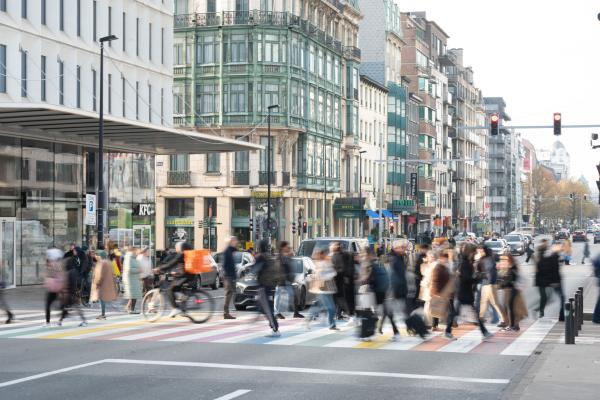
By focusing on decarbonising urban transport, candidate cities are implementing strategies that are essential for reducing greenhouse gas (GHG) emissions. This approach includes utilising new technologies like recharging infrastructure for electric vehicles, as well as promoting public transport and active mobility options, such as extending pedestrian areas to encourage walking and cycling.
The EU Mission on Climate-Neutral and Smart Cities, with its goal of establishing 100 climate-neutral cities by 2030, serves as a catalyst for these efforts. The cities selected to participate in this initiative act as experimentation and innovation hubs to enable all European cities to follow suit by 2050.
Through a clustering algorithm that analysed data from candidate cities, CORDIS (Community Research and Development Information Service) and TRIMIS (Transport Research and Innovation Monitoring and Information System) databases, the study finds that cities that have received funding from the EU’s Horizon 2020 programme for projects related to transport and mobility are more likely to embrace the EU Mission’s challenge.
However, the path to climate neutrality is not the same for all cities. Each city must tailor its policy mix to fit its unique circumstances, taking into account existing emissions profiles, size, available funding and organisational capabilities. Moreover, collaboration with various stakeholders, including transport operators and energy distributors, is also crucial for the success of interventions.
Among the different transport technologies, smart urban mobility stands out as the category that differentiates candidate cities the most from other EU cities. Smart mobility supports new and emerging technologies such as electric and autonomous vehicles, drone technology and on-demand mobility services.
The JRC has been actively involved in the selection process of the 100 Mission cities and will continue to provide technical assistance to the selected cities and beyond.
Background
Cities account for more than 70% of GHG emissions and consume over 65% of the world's energy. The EU Cities Mission aims to help European cities become climate-neutral, providing cleaner air, safer transport and less traffic congestion to their citizens.
All Mission Cities develop a Climate City Contract (CCC) to plan and implement concrete actions in a collaborative way to reach climate neutrality by 2030. Through CCCs, cities deliver on the Mission’s objectives by engaging with citizens and partners at the local, national and EU level.
Cities submit their plans for review and upon receiving a positive evaluation are awarded an EU Mission Label, which aims to simplify access to funding and financing sources at EU, national and regional levels, with focus on private investment.
Related content
Transport Research and Innovation Monitoring and Information System (TRIMIS)
Community Research and Development Information Service (CORDIS)
Details
- Publication date
- 13 March 2024
- Author
- Joint Research Centre
- JRC portfolios




